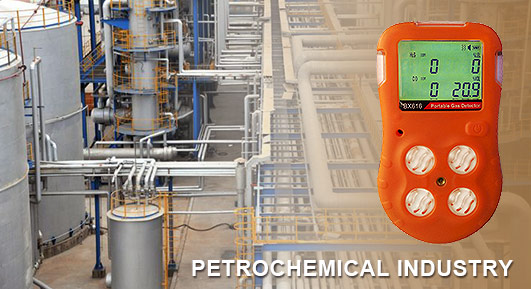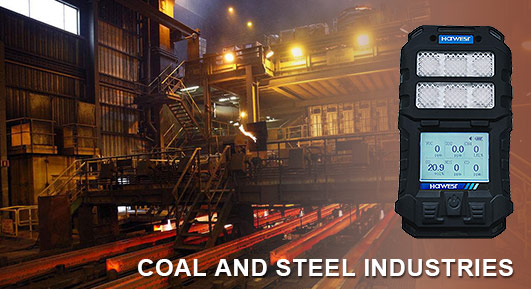For all inquiries, please fill in the form below(* are required) to send us a brief message, and we will get back to you as soon as possible.
What is the most common gas detector worn by personnel?
Gas detectors are designed to measure and identify the concentration of certain gases in certain work areas. Typically, they protect workers from exposure to flammable gases (CH4, C3H8 or H2), toxic gases (H2S, CO or Cl2) and low oxygen concentrations. Gas detector devices are divided into two broad categories: portable gas detectors or fixed gas detectors.
Portable gas detectors (such as a single or multi-gas detector) are able to monitor gases present close to the user and can be easily connected to clothing or held in the user’s hand. Portable gas detectors notify the individual when gas levels in the atmosphere exceed safety limits, or oxygen levels are too low, especially inside confined spaces.
What’s the Difference Between Single and Multi Gas Detectors?
When deciding what type of gas detector you need, it’s important to consider both single gas detectors and multi gas detectors. Single gas detectors are monitoring one gas in particular — it could be Hydrogen Sulphide, Carbon Monoxide, Ammonia, Chlorine or Sulfur Dioxide, among other gases.
Multi gas detectors are generally equipped to monitor O2 levels while detecting the presence of combustible and toxic gases in the environment. Multi gas detectors may detect Carbon Dioxide, Sulphur Dioxide, Nitric Oxide, Chlorine, VOCs, and many other gases, depending on the sensor configuration.
When selecting the right gas detector you should always make sure you are aware of the gases that are commonly used/produced/stored in your industry or environment.
If you’re trying to work out how many gas detectors are there and what are the types of gas detectors, chances are, you’re looking to invest in a gas detector device or are looking to learn more about your existing equipment. You’ve come to the right place. Our gas detection experts would be happy to walk through some common questions to better select the right device that fits your individual needs and environmental requirements.
Feel free to speak to an expert at sales@hwsensor.com

